House Democrats joined forces with their Republican colleagues Wednesday to introduce a bill to monitor and protect U.S. national security from communist China’s aggressive “malign activities across the globe.”
In a statement, the office of Congresswoman Claudia Tenney (R-NY) announced the introduction of the bipartisan China Watcher Act to establish a monitoring system to keep tabs on the communist country’s nefarious activities across the globe, posing a threat to U.S. national security.
Tenney, who introduced the bipartisan bill sponsored mainly by her Republican colleagues in the House Foreign Affairs Committee, further declared:
China has aggressively ramped up its malign activities across the globe and today poses one of the most significant national security and economic threats to the United States. I’m introducing the China Watcher Act so we can better monitor China’s dangerous activities and be prepared to counter incoming threats across numerous sectors.
China has gone unchecked for too long, and it’s time for the United States to take decisive action.
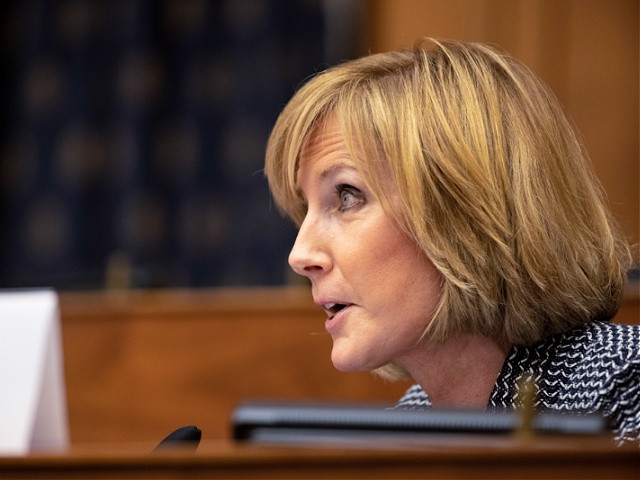
Representative Claudia Tenney, (R-NY), speaks during a hearing March 10, 2021, on Capitol Hill in Washington, DC. (Photo by Ting Shen-Pool/Getty Images)
Congresswoman Tenney went on to thank the top Republican on the House Foreign Affairs Committee, Michael McCaul (TX), and her other colleagues from the opposite party “for their strong, bipartisan support of this legislation.”
“Under the Chinese Communist Party, the People’s Republic of China is engaged in malign activities across every region of the globe,” McCaul proclaimed.
“This challenge is unlike any other and requires a worldwide strategic view,” he continued.
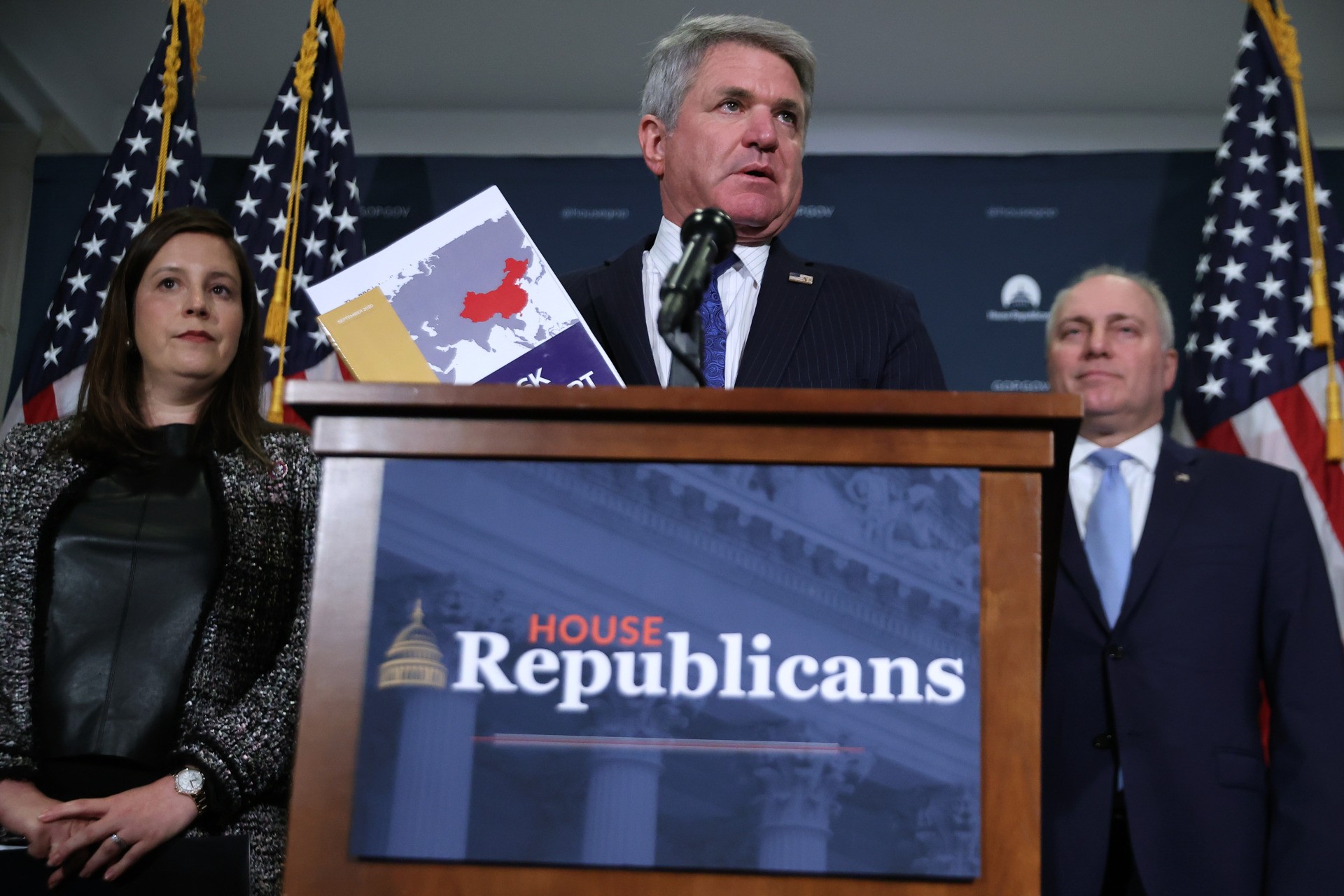
Rep. Mike McCaul (R-TX) talks about China during a news conference with House Republican Conference Chair Rep. Elise Stefanik (R-NY) (L) and House Minority Whip Steve Scalise (R-LA) following a House Republican caucus meeting at the U.S. Capitol Visitors Center on October 20, 2021 in Washington, DC. (Photo by Chip Somodevilla/Getty Images)
According to Tenney’s office, the bill directs the Secretary of State to implement a “China Watcher Program” within the State Department in coordination with the Pentagon.
“The program would commit resources and personnel to monitor and combating the People’s Republic of China’s [PRC] malign influence across military, economic, and political sectors in foreign nations,” the statement added.
The bipartisan members of the House Foreign Affairs Committee and two other lawmakers came together to sponsor the bill amid infighting mainly over immigration-related foreign policy issues tearing President Joe Biden’s administration apart.
The months-long internal rift between President Biden’s political appointees from the progressive leftist camp and those described as “others” or even “moderates” by some analysts have laid bare the political turmoil driving some high-level officials to resign.
Besides Tenney, two other Democrats — Reps. Albio Sires (NJ) and Dean Phillips (MN) sponsored the bill along with five Republicans — Ronny Jackson (R-TX), Peter Meijer (MI), Tracey Mann (KS), Brian Babin (TX), and McCaul.
The bill would “strengthen the capacity of the United States government to engage with foreign nations as well as regional and international military, economic, and political organizations and institutions to better coordinate policy regarding the PRC’s malign influence,” among other things.
The U.S. government has long warned of China’s expanding influence in the Americas and Africa.
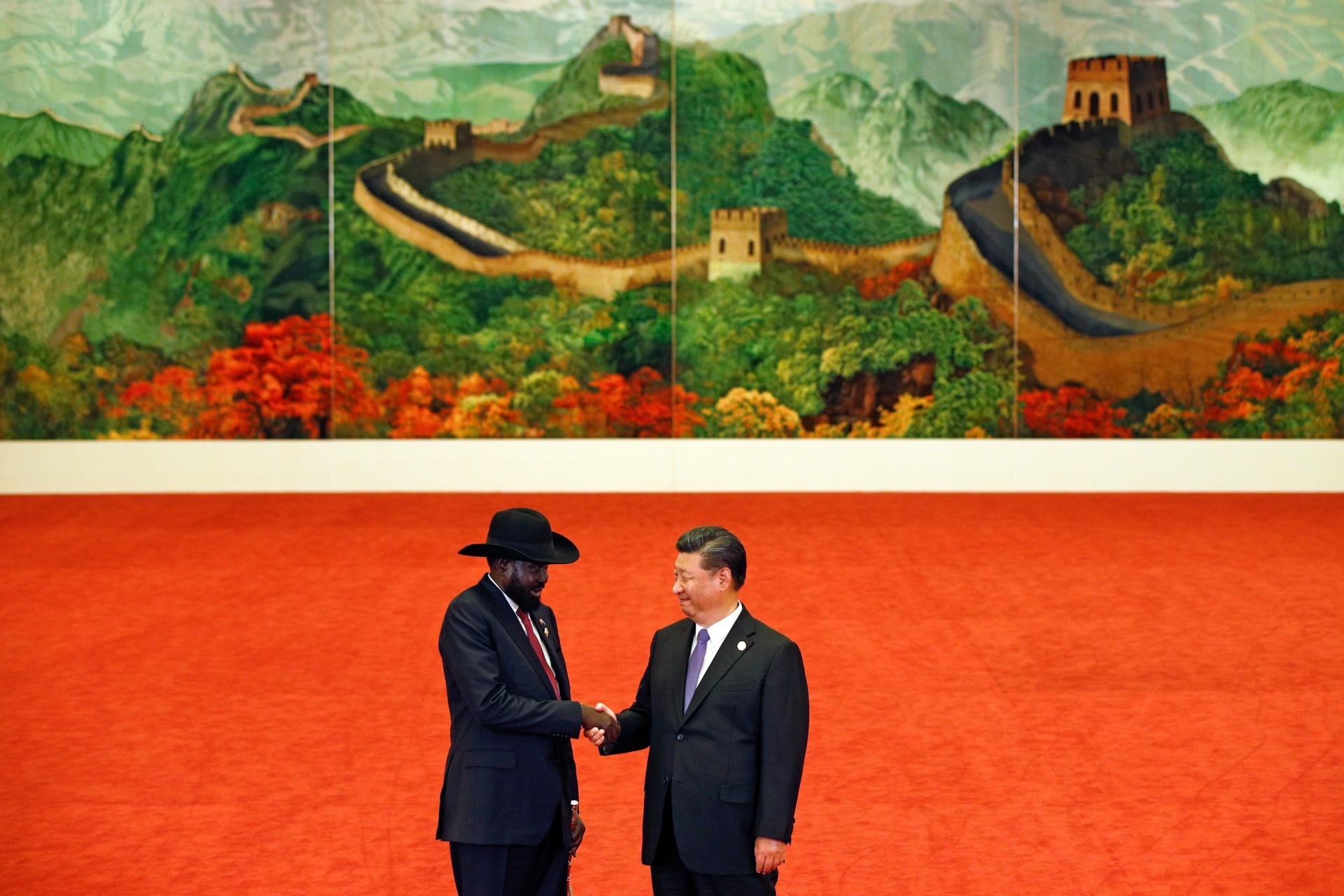
South Sudan’s President Salva Kiir (L) shakes hands with China’s President Xi Jinping during the Forum on China-Africa Cooperation at the Great Hall of the People in Beijing on September 3, 2018. – President Xi Jinping told African leaders on September 3 that China’s investments on the continent have “no political strings attached”, pledging $60 billion in new development financing, even as Beijing is increasingly criticised over its debt-heavy projects abroad. (Photo credit should read ANDY WONG/AFP via Getty Images)
Earlier this year, the U.S. military warned that China, the birthplace of the coronavirus disease that at least some U.S. intelligence agents believe may have originated in a lab, is exploiting the pandemic to advance its global Belt and Road Initiative (BRI) in trade, technology, and infrastructure in Latin America. China already holds $165 billion in what the U.S. has deemed “predatory” loans often collateralized with strategic assets Beijing can seize in the case of non-payment.
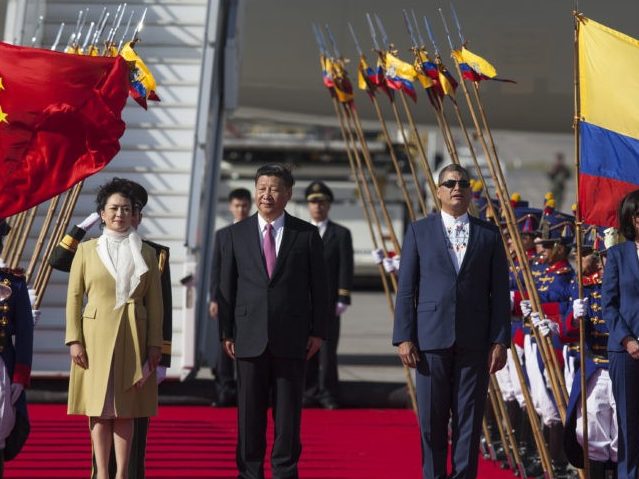
China’s President Xi Jinping, center, and his wife Peng Liyuan stand with Ecuador’s President Rafael Correa, second from right, at Mariscal Sucre Airport in Quito, Ecuador, Thursday, Nov. 17, 2016. (AP Photo/Ana Buitron)
Moreover, the U.S. military, echoing independent analyses, has repeatedly warned that China’s massive effort to grow and modernize” its military was “eroding” the United States’ “relative competitive military advantage” over Beijing.
Under U.S. President Donald Trump’s National Defense Strategy, the Pentagon prioritized combating America’s strategic competitors China and Russia, over the war on terror and other threats.
Secretary of State Antony Blinken lauded former President Donald Trump for being “tougher” on China.
However, the top U.S. diplomat and Biden have extended an olive branch to China, saying the their team is willing work with China on mutual interest matters, marking a departure from the previous administration’s approach.
In early 2019, U.S. Indo-Pacific Command (PACOM) cautioned that China was pursuing sophisticated technologies and advanced weapons systems, including hypersonic glide vehicles.
Recent news reports revealed that China’s test of a nuclear-capable hypersonic missile back in August surprised the Biden administration despite the PACOM commander’s warnings from back in 2019.
In mid-February, the Republican Study Committee (RSC) blasted “weaknesses” of the Biden administration’s policy towards communist China.
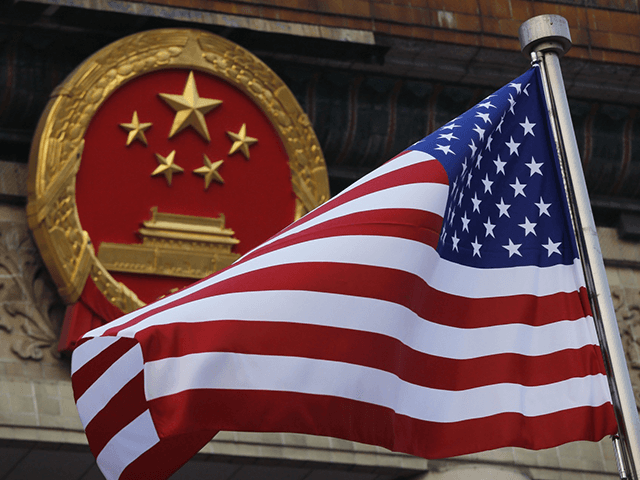
COMMENTS
Please let us know if you're having issues with commenting.